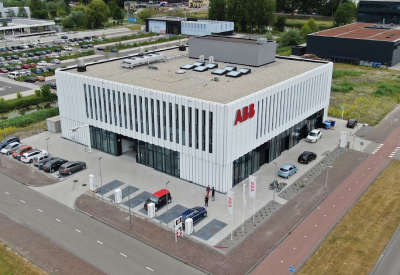IRENA’s World Energy Transitions Outlook Re-Writes Energy Narrative for a Net Zero World

July 8, 2021
Accelerating energy transitions on a path to climate safety can grow the world’s economy by 2.4% over the expected growth of current plans within the next decade, a new analysis from the International Renewable Energy Agency (IRENA) shows. The agency’s 1.5°C pathway foresees the creation of up to 122 million energy-related jobs in 2050, more than double today’s 58 million. Renewable energy alone will account for more than a third of all energy jobs employing 43 million people globally, supporting the post-COVID recovery and long-term economic growth.
IRENA’s World Energy Transitions Outlook: 1.5°C Pathway sees renewables-based energy systems instigating profound changes that will reverberate across economies and societies. Sharp adjustments in capital flows and a reorientation of investments are necessary to align energy with a positive economic and environmental trajectory. Forward-looking policies can accelerate transition, mitigate uncertainties, and ensure maximum benefits of energy transition. The annual investment of US$4.4 trillion needed on average is high. But it is feasible and equals to around 5% of global GDP in 2019.
“This outlook represents a concrete, practical toolbox to total reorientation of the global energy system and writes a new and positive energy narrative as the sector undergoes a dynamic transition,” says Francesco La Camera, IRENA’s Director-General. “There is consensus that an energy transition grounded in renewables and efficient technologies is the only way to give us a fighting chance of limiting global warming by 2050 to 1.5°C. As the only realistic option for a climate-safe world, IRENA’s vision has become mainstream.”
“Energy transformation will drive economic transformation,” continued La Camera. “Energy transition is a daunting task but can bring unprecedented new possibilities to revitalize economies and lift people out of poverty. IRENA’s outlook brings unique value as it also outlines the policy frameworks and financing structures necessary to advance a transition that is just and inclusive. Each country will define what is the best for them, but collectively, we must ensure that all countries and regions can realize the benefits of the global energy transition for a resilient and more equitable world. We have the know-how, we have the tools, we need to act, and do so now.”
Phasing out coal, limiting investments in oil and gas to facilitating a swift decline and a managed transition as well as embracing technology, policy and market solutions will put the global energy system on track for a 1.5°C pathway. By 2050, a total USD 33 trillion of additional investment are required into efficiency, renewables, end-use electrification, power grids, flexibility, hydrogen and innovations. The benefits, however, greatly exceed the costs of investments.
When air pollution, human health and climate change externalities are factored in, the payback is even higher with every dollar spent on the energy transition adding benefits valued at between USD 2 and USD 5.5, in cumulative terms between USD 61 trillion and USD 164 trillion by the mid-century.
IRENA’s outlook sees energy transition as a big business opportunity for multiple stakeholders including the private sector, shifting funding from equity to private debt capital. The latter will grow from 44% in 2019 to 57% in 2050, an increase of almost 20% over planned policies. Energy transition technologies will find it easier to obtain affordable long-term debt financing in the coming years, while fossil fuel assets will increasingly be avoided by private financiers and therefore be forced to rely on equity financing from retained earnings and new equity issues.
But public financing will remain crucial for a swift, just and inclusive energy transition and to catalyze private finance. In 2019, the public sector provided some US$450 billion through public equity and lending by development finance institutions. In IRENA’s 1.5°C Scenario, these investments will almost double to some US$780 billion. Public debt financing will be an important facilitator for other lenders, especially in developing markets.











